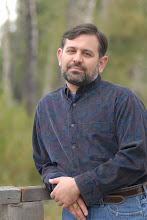What's the connection between mood and the adrenal glands you may ask, or between adrenal health and sleep? It's all connected, and it's only getting worse.
Adrenal fatigue is fast becoming one of the biggest health problems or seemingly healthy people. Let me explain: There is a concept in European medicine, particularly in endobiogeny, that organs can be dysfunctional while all the blood tests and imaging studies are normal. I call this "functional dysfunction." This means that you can get by, but you're only running on 3 gears instead of 5. This is the classic example of when a doctor says "You're tests are fine. You're not sick" and you think "But I feel terrible. How can I have normal labs and not feel normal?" That's functional dysfunction.
The adrenal gland is the first responder to stress. It makes adrenaline and it makes your natural cortisol hormone. Stressors--from noise pollution like city traffic, or light pollution from city life or working night shifts, emotional and physical stress that go one too long start to exhaust the adrenal gland's ability to respond to stress.
When the adrenal gland is over-stimulated and it can't make enough cortisol or adrenaline, two things happen. First, you have a hard time using your blood sugar and keeping up energy levels. Fluctuating blood sugar levels lead to swings in emotions and concentration because blood sugar is the only fuel the brain can use, so if sugar levels are even slightly unsteady, so is your Brian function. When your body needs to grab more sugar from your food, it uses too much serotonin--your good mood brain transmitter--in the gut. This is because 95% of serotonin is used in the gut for digestion. Only 5% is used in the brain for mood. So, your gut steals serotonin from the brain for the gut and then you get depressed and you're tired.
The second thing that happens from adrenal over-stimulation is that you make too much DHEA, a hormone that in high levels puts people on edge and makes them quick to anger and reduces their tolerance levels. So now you're moody, tired, cranky and depressed.
The funny thing is, even though people feel tired with adrenal fatigue, they have a hard time sleeping because they get a second wind with an adrenaline burst late at night.
So, if you are getting dark circles under your eyes, have trouble getting started in the morning, or feel a brain fog until around 10AM, or feel uncontrollably tired between 2-4pm and have altered mood or depression, you may have adrenal fatigue and minor depression.
The key is to get a good night's sleep. That's where a natural sleep aid like Sweet Sleep is helpful. It naturally increases the hypnogenic factors that help you sleep at night, and reduces stress levels.
Mood Master helps in two ways:
- ENERGY: Mood master contains energy-giving essential oils like grapefruit and clary sage. By taking over some of the role of adrenaline and resting part of the adrenal gland which lets it build up reserves. Over time, say 3-12 months, you should start to get more energy back and have steadier mood.
- MOOD: Mood master contains mood-balancing essential oils like clary sage and clove, and anti-depressant essential oils like lavender and grapefruit. By improving mood, you reduce emotional stress and improve tolerance to external stressors.
Work with an experienced health care provider to help you manage your condition. You may need other supplements like vitamin C, which helps make nor-adrenaline, or SAMe, which helps make adrenaline, or B vitamins which help manage stress. There are also natural cortisol type plant products from the young shoots and buds of the sequoia and oak trees, or from dogwood and black current bud.




No comments:
Post a Comment